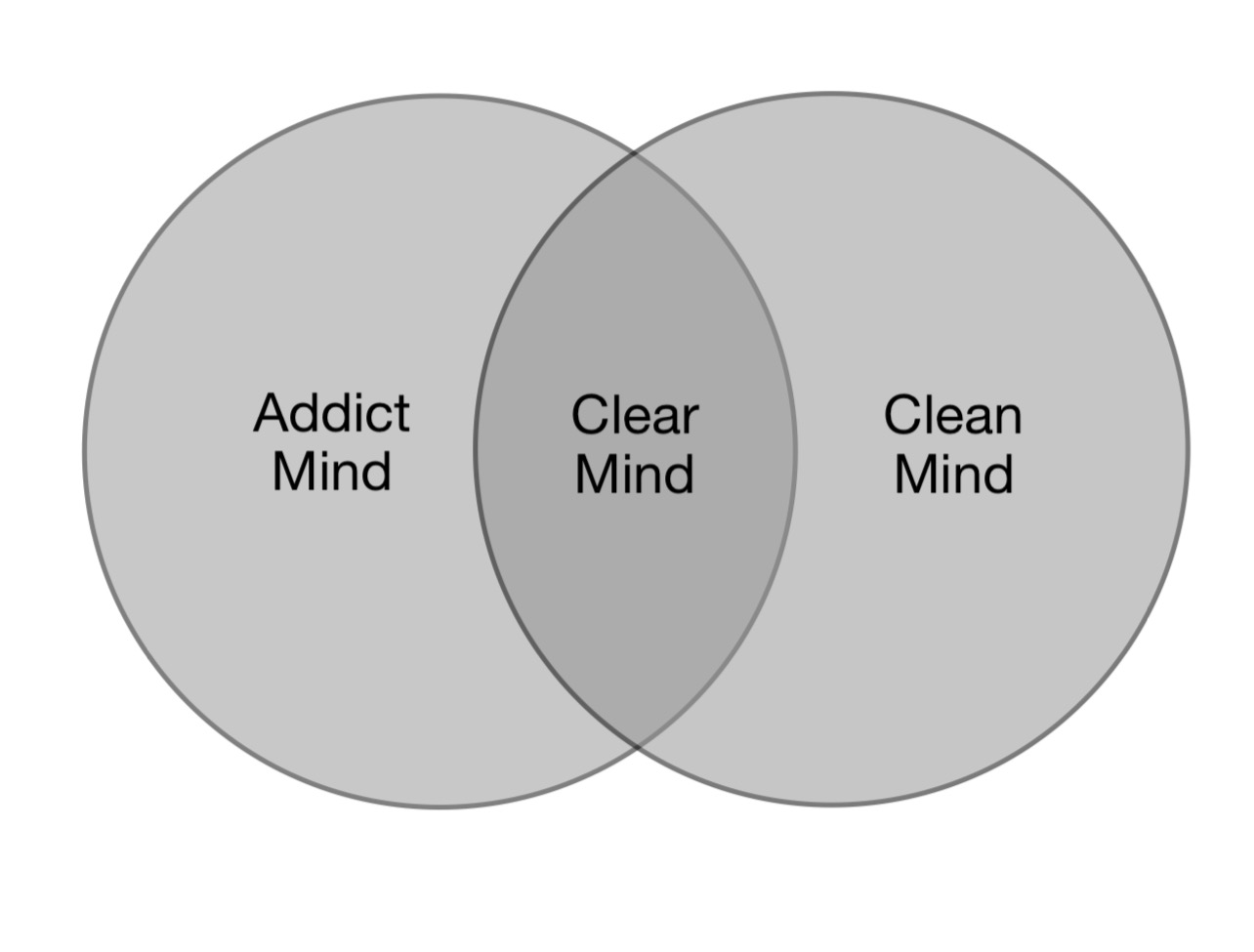As promised, albeit a bit later than planned (#lifehappens), here is the second post in my series exploring the application of DBT skills in the context of addiction and substance use treatment. This second DBT-SUD skill is called “Clear Mind,” and is reminiscent of the concept of “Wise Mind” from the core DBT mindfulness skills. As you recall, Wise Mind brings together two states of mind, Reasonable Mind and Emotion Mind. These states of mind are universal, as we all vacillate between them over the course of our lives. Finding balance, or a synthesis between the two, allows us to access both the wisdom of our thinking mind and of our emotions, both of which can lead to choices that are truly representative of our core selves and that can help cultivate our life worth living.
Like with Dialectical Abstinence (the first DBT-SUD skill) and Wise Mind, Clear Mind exemplifies the dialectical stance we take in DBT Therapy. It synthesizes two other states of mind universally experienced by people struggling with addictive behaviors and thinking — Clean Mind and Addict Mind — and in doing so acknowledges the presence of both AND encourages us to find balance between the two with awareness and intention. Clean Mind is the state of mind where we may be abstinent from addictive behaviors, but may be blind to the dangers or risks that may lead to a relapse. This state of mind is akin to the “pink cloud” that people in early recovery often experience — a place of invincibility and relief infused by some denial and hubris. Addict Mind, on the other hand, is when we are smack dab in the throes of our addictive behaviors and thinking, ruled by urges and mindless reactivity to them.
I often say that an effective recovery program consists of the three “C’s” — compassion, connection and clarity. The “clarity” piece of the three C’s is perfectly represented by “Clear Mind”— where we both tune into the urges and cravings that the Addict Mind experiences, without judgment or reactivity, and also stay present with the intention towards abstinence and the relief and hopefulness of Clean Mind. WIth Clear Mind is It is important to note that, not unlike with Wise/Emotion/Reasonable Mind, finding ourselves polarizing in one state of mind or the other isn’t just ineffective but can also be dangerous. And also just like Wise Mind skills, both the Clean and Addict states of mind must be acknowledged and held in awareness in order to make wise choices based upon clarity.
If you or a loved one is struggling with addiction and are curious to learn more about how DBT skills, can help, stay tuned for more articles about the DBT-SUD in the coming weeks and months! Wishing you many moments of compassion, connection and clarity — Nikki

